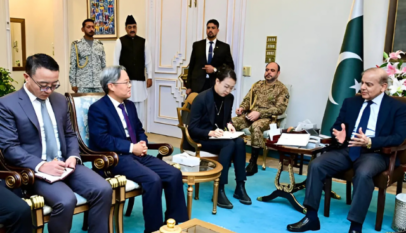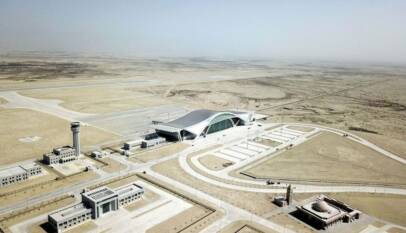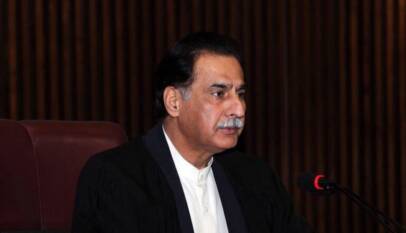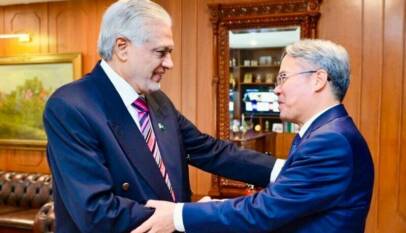Pak-China Conference hails China’s poverty alleviation strategy as model for Pakistan, CPEC termed as growth booster.
Islamabad, November 10, 2020: Pakistan-China Institute (PCI) and Center for Chinese Legal Studies, Lahore University for Management Sciences (LUMS) co-hosted a virtual conference on “Poverty Alleviation, Covid-19, and CPEC” as part of PCI’s ‘Friends of Silk Road’ Initiative. The conference hosted eminent speakers from Pakistan and China and a large audience consisting of students, faculty, and researchers from all over Pakistan. Special Assistant to Prime Minister on Poverty Alleviation, Dr. Sania Nishtar, was the Chief Guest and Keynote speaker. The conference featured an insightful discussion on Pakistan’s existing Poverty Alleviation Strategy, Covid-19’s impact on Pakistan’s fight against poverty, and CPEC’s role vis-à-vis alleviating poverty in the neighboring countries. The main purpose of the conference was to explore the Poverty Alleviation Strategy of China in an attempt to understand how Pakistan can learn from and employ China’s best practices. The conference was moderated by Prof Sikandar Shah, Director of LUMS Center for Chinese Legal Studies.
In his opening remarks, Senator Mushahid Hussain Sayed, Chairman Foreign Affairs Committee in the Senate of Pakistan & Founding Chairman, PCI, said that there is a lot to learn from China’s poverty alleviation strategy. By lifting 800 million people out of poverty, China has made history. Moreover, he said that on Coronavirus too, China had seen success due to timely measures, decisive leadership and cooperation of the people. Senator Mushahid Hussain termed the Belt & Road Initiative (BRI) as the most important diplomatic and developmental initiative of the 21st Century, with CPEC as its pillar..
In her Keynote speech, Dr. Sania Nishtar, Special Assistant to Prime Minister on Poverty Alleviation, briefed the participants about Pakistan’s poverty alleviation strategy. She said that framing the issue of poverty with the Chinese experience is a welcome and relevant initiative. . While commenting on the importance of CPEC, she said that CPEC is a paradigm of growth and it will provide a lot of opportunities in terms of job creation helping to alleviate poverty as well. . She said that the government of Pakistan has got its own poverty alleviation strategy called “Ehsaas Program” which contains 140 actions and programs. Moreover, she said that the government has planned more action plans to be included in the Ehsaas strategy. She said due to Coronavirus, there was 18% increase in food insecurity in Pakistan. She said a Nationwide Digital Survey was being done to evaluate households and the government was keen to include social protection as a fundamental right in the Constitution, with a whole-of-government approach, involving the Federal and provincial governments.
Professor Sikandar Shah, Director LUMS Center for Chinese legal studies, offered full support to the government of Pakistan of the academia in regards to devising poverty alleviation strategies.
Prof Xia Jingjie, Professor of Economics at the prestigious Peking University, while briefing the participants about China’s poverty alleviation strategy, said that hundreds of millions of rural laborers have migrated and worked in cities and hence have been lifted out of poverty. He said that in its rooting-out poverty campaign, the Chinese government adopted a simplified multidimensional poverty standard, i.e., Two-Not-Worries (not worrying about food and clothing) and Three-Guarantees (guaranteeing 9-year compulsory education for children and youth of school age, medical care and housing safety). Moreover,, a total of about 800 million poor people have been lifted out of poverty in China over the last 40 years since the country’s Reform and Opening up.
Professor Uzair J. Kayani, Assistant professor of law at LUMS said that there is a need to translate the Chinese experience of poverty alleviation to common law. Moreover, he said that Pakistan has a lot to learn from China. For instance, Pakistan can learn from China’s experience of bureaucratic reforms to lower costs.
Masood Khalid, former Ambassador of Pakistan to China, said that China is making great strides in almost every field and is now becoming a knowledge economy. He said that China has almost eliminated illiteracy. While speaking on how can Pakistan learn from the Chinese experience, he said that it needs to develop its own governance system like China. Moreover, he said that there is great potential in the tourism sector in Pakistan. He also called for learning from Pakistani students studying in China. He termed the Belt and Road Initiative as a great opportunity in overhauling infrastructure.
Dr. Vaqar Ahmed, Executive Director SDPI, put forward three main options for Pakistan for reviving the economy in the post covid recovery. Firstly, the country needs to put the structural reforms agenda back on track as per the commitment with our various development partners and IMF. Secondly, Pakistan needs to harvest the benefits arising from CPEC Phase-II, especially the special economic zones. Thirdly, Pakistan needs to exercise fiscal discipline
In his concluding remarks, Mustafa Hyder Sayed, Executive Director of Pakistan-China Institute, said that CPEC is not all about brick and mortar projects; instead, it has an inclusive people-centred approach. There is a joint working group on socioeconomic development and poverty. He briefed the participants about the multi-dimensional socioeconomic projects under CPEC and said that these projects are creating a lot of opportunities for the local communities.
At the end of the conference, there was a comprehensive question/answer session from the participants, which lasted for over 30 minutes.
Pakistan fully supports China’s One Belt, One Road initiative: Information Minister
Minister for Information and Broadcasting Attaullah Tarar has reaffirmed government’…













